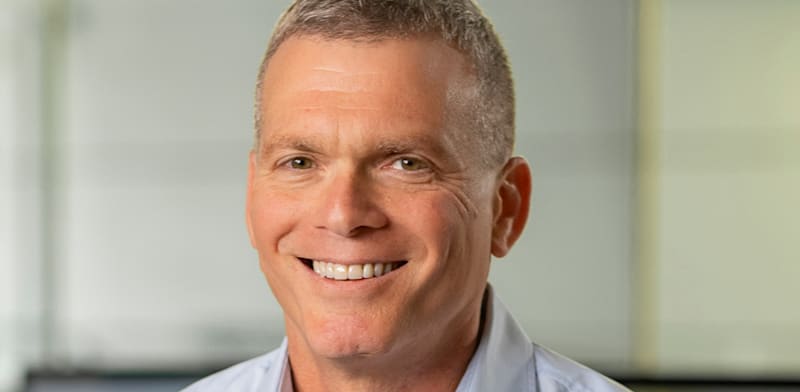Sometimes a financial advisor looks across the room, not expecting to see anything in particular, but locks eyes, gives a slight smile and falls into a niche that makes a passion burn in them like never before.
Well, maybe it’s not that dramatic. But for Larry Sprung, founder of Hauppauge, New York-based Mitlin Financial, the verbiage isn’t unfamiliar.
A little more than a decade ago, he began working with romance authors, not because he found them impossible to resist, but because of a confluence of his wife’s hobby, a death in the family and one philanthropic novelist.
Sprung, who has been an advisor for about 27 years, said about 10% to 15% of his clients are now romance authors. And like any niche, it has its benefits and challenges.
“I don’t think it’s as big a niche as retiring tech professionals, but there’s certain challenges that they have,” Sprung said. “But when we’re introduced to the right people, it’s usually a good fit.”
Financial Planning’s Know Your Niche series focuses on advisors who have built niches with at least part of their client bases. Below is a conversation with Sprung about how he developed his niche, his strategies to find and develop those clients, and the advice he’d give to others interested in doing the same.
This conversation has been lightly edited for length and clarity.
Financial Planning: How did you develop this niche? How did it start?
Larry Sprung: I lost my brother-in-law back in 2004 to suicide and became very involved in mental health and suicide prevention. We had a fundraiser, and we’ve raised close to $2 million for the American Foundation for Suicide Prevention over the years.
My wife had a book blog. She used to read romance books all the time and write little blurbs about them. And there was a romance author that she knew that knew of my brother-in-law’s story and that we had this fund set up and raised money on his behalf. This author, Katie Ashley, approached my wife and said, “Hey, you know, I’m writing a new book, and I’m set to release it for the month of May, and it’s mental health awareness month. Would you be OK if I donated the proceeds from the book sales to your brother’s fund?” And my wife’s like, “Yeah, sure, no problem.”
More authors heard about it and wanted to join in. So ultimately we ended up having 10, 15, 20, 30 authors that were participating.
Around the same time, we were approached by a group of people who put on conferences for the romance author industry. And they said, “You know, there is a dire need for advice and guidance within this community, because some people are certainly doing this as a hobby for extra income, but some people have done really well and created a nice niche for themselves, and they really don’t understand how to handle this newfound wealth.” They end up getting this big royalty check. Next thing you know, they’re buying a house with cash, or cars with cash, forgetting about the tax bills and things like that. And they were like, “We’ve had advisors come in and give workshops before, but they never stick. Would your husband be willing to come in and kind of give a talk about that?”
So we created a presentation called “Write Your Happily Ever After.” And because we’re going to this romance conference where many of these authors were contributing to my brother-in-law’s fund already through this book fundraiser in May, we decided to throw a cocktail party more or less as a thank you to all of them for helping raise funds for mental health and awareness.
Then some authors started reaching out to us and asking for help. And it just really snowballed from there where we have many authors that we’re working with.
FP: After that initial set of clients, have you continued to find others in this niche?
LS: It’s a very tight-knit community, and they all talk to each other. So a lot of it has been word of mouth in terms of the new families that we get introduced to.
We do have a section on our website that’s specifically dedicated to authors we just recently created and published, also a guide for authors about issues that they should be thinking about. So we are proactively doing that, and we do get inquiries through our website, where people see the author piece and then inquire through us as far as how we might be able to help them.
READ MORE: Every RIA needs a website. Here’s how to do it right
Within our community of accountants, attorneys and trusted professionals, they also know that we’re very heavily involved in this community. So if they have [authors] that they work with as well, we many times get an introduction that way.
FP: What are some of the needs these clients have, in terms of planning, that differ from other clients?
LS: The way I look at their community, they’re very much creatives, they’re very much artistic. But at the same time, they’re no different than really an entrepreneur of any other business. Their business just happens to be writing books, and they have this continuum along the entrepreneurial journey, just like any other business.
A lot of people start out with it like a side gig or a hobby. As they start getting more acclimated or better at their craft, they start moving up that chain. And eventually, some of our largest authors have full-time staffs, agents, payroll providers, HR, everything that a normal entrepreneurial venture would have.
Depending how they’re publishing, if they’re traditionally published versus self-published, there are different constraints. A lot of them are constrained by the Amazons of the world, because if Amazon wants to shift how they’re compensating their authors, they’re basically at their liberty. And there’s been a lot of changes in that area, with things like Kindle Unlimited, where people just pay a subscription and they can read. The author’s compensation is a lot different.
So I think just like any business owner that we as an advisory firm would work with, or a family we would serve, we have to be knowledgeable about that business in that industry so we can properly advise them on a lot of the big challenges.
FP: Do you read romance novels yourself?
LS: I do not. My wife reads them. My wife reads them a lot, so I get all the inside scoop from her that I need to know. We’ve had the pleasure, and we’re very grateful, that a couple of authors have dedicated their books to my brother-in-law’s fund. My wife and I have both been characters in a couple of books. That’s happened more than once with two different authors. So it’s been fun seeing that and reading that.
FP: What does your character do in the novels? Is he a financial planner?
LS: I think in one of them, we were just neighbors of the main character, and they talked about us, and they didn’t use our names, but it was based on our family. And then in one of them, I was an announcer. It’s a hockey romance book, and we’re a big hockey family. So I was in the book announcing one of the scenes in terms of what was going on in the game.
FP: What happens when an author finally finds big success?
LS: A lot of the challenges that we see with this community are those that are on the precipice of doing really well, and when they do hit their mark and hit their stride, those first big royalties and that big income year that they have is really a learning curve. A lot of these folks never had incomes like this before. This has been the largest income stream that they’ve seen because they’ve done really well, and they’re not used to worrying about having to pay taxes, because those are not being withheld from those payments that they’re receiving.
We try to get them prepared in advance of that first big check showing up. Understanding and getting good habits is sometimes tough because they’re either skeptical or hard on themselves that they don’t think they’re going to get there and don’t think they need to prepare, or they come to us sometimes too late because they already have the check, or they’ve already spent a lot of checks.
It’s a big education process at the beginning, because a lot of these concepts that are commonplace for us, and things we talk about all the time, are not necessarily commonplace for them.
FP: What’s the best piece of advice you might give to someone who’s looking to develop their own niche?
LS: I think you have to be passionate about whatever that niche is. You have to really have a feeling that this is going to bring you a lot of joy by working with these people and really have a passion for it, because it probably is not going to happen overnight. If you don’t have that passion tied to it, or a “why” tied to it, it’s going to make it really challenging for you to stay involved.
For me, it was really like almost by mistake. We went in with really altruistic intentions in terms of raising money, and it just ended up moving in that direction. And I think sometimes that’s the best way of it happening. Because sometimes, you pick a niche, and you go after it, and it’s kind of forced and maybe manufactured at times. I think the best ones are those ones that kind of happen naturally over time, just simply because it’s tied to something you have an incredible passion for.

























